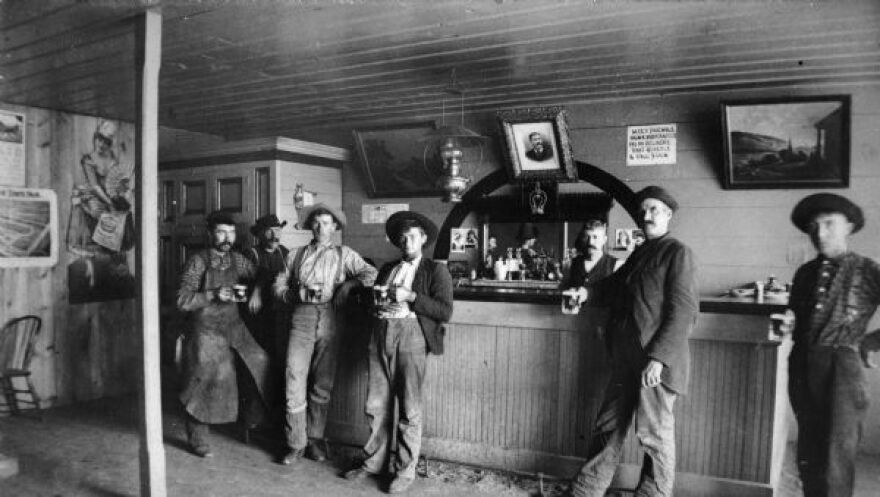Frontier bar fights were common in the Old West as well as in frontier lumbering regions like northern Wisconsin. But a common occurrence does not mean an acceptable occurrence, and as the nineteenth century neared an end people insisted on stronger moral standards. An 1896 altercation in Minocqua helps illustrate this.
While not part of the Old West, the Northwoods of Wisconsin in the late nineteenth century was a frontier in every sense of the word. Towns and lumber camps in the area had an overabundance of saloons, bars, and taverns, and given that the overwhelmingly male population of lumberjacks and miners had few other outlets, fights were bound to break out. One instance from Minocqua serves to illustrate how quickly things could get out of hand.
Wednesday evening, September 9, 1896, started off quiet in Minocqua. William Williams’ saloon was doing a small business. Three men going by the names of McDonald, Roach, and Gordon were sitting at a table playing cards. A fourth man, Rolly Hagen, was leaning against the entrance door taking in the night air. A young man named James Collins was tending bar. It was a dreary affair until Moses Gravel entered the saloon.
Gravel had a reputation around Minocqua as a tough and irritable character. He did not have many friends and stood at the bar by himself. He was likely intoxicated before entering Williams’ Saloon because as soon has he started drinking he began to hurl insults at everyone in the room. The vile names he called the other men were not recorded for posterity, but Hagen, who had been drinking himself, took the slurs personally.
This is where the story starts to blur a little. Hagen walked right over to Gravel, hit him, and knocked him down. That part is clear. What is less clear is the part played by Collins the bartender. Collins claimed that he was walking towards the billiard table in the back of the saloon as Hagen punched Gravel. However, it was also claimed that Collins struck Gravel in the back of the neck as he was fighting Hagen. What clearly happened was that Collins and the three card players all rushed to the two men and pulled Hagen off from Gravel.
Gravel was unconscious, so they dragged him outside for some fresh air. Collins ran to the Minocqua House for a lantern and some help. When he returned, Gravel was dead. Everyone in the saloon that night was arrested and remanded to the Vilas County Sherriff to await trial.
The Coroner’s inquest revealed a clot of blood at the base of Gravel’s brain, which could have been caused by Collins hitting him in the back of the neck or by striking the foot rail of the bar as he fell. The formal verdict was that Gravel hit the foot rail as he fell. Collins and the card players were released, while Hagen accepted full responsibility for Gravel’s death.
A single frontier bar fight resulting in the death of one of the combatants, tragic as it was, may seem insignificant in the larger historical picture. However, both Gravel and Hagen were married men, and incidents of married men wasting time in bars and destroying families is what provided fuel to the prohibitionist cause. What happened in Minocqua in 1896 did not trigger prohibition, but it was an event that contributed to the ongoing national debate.







